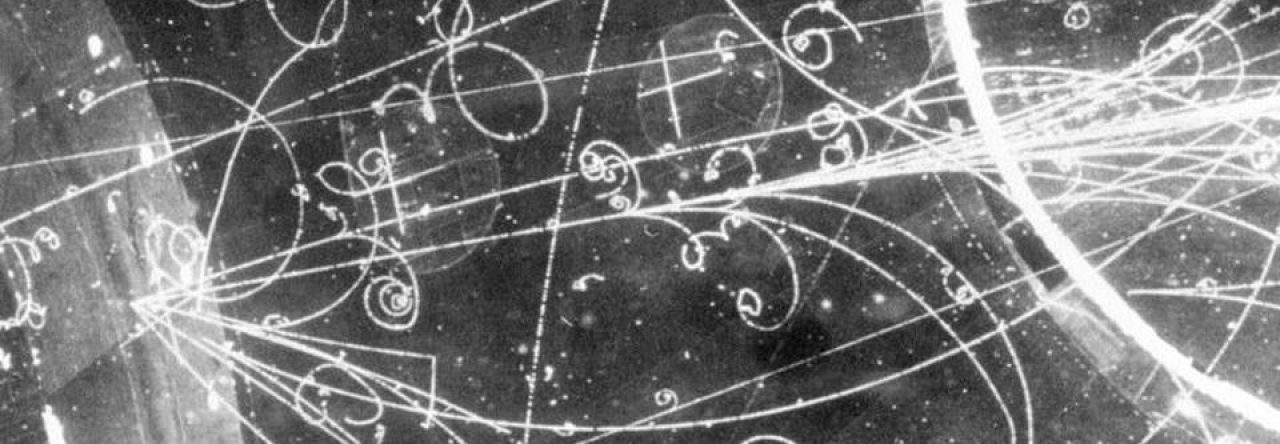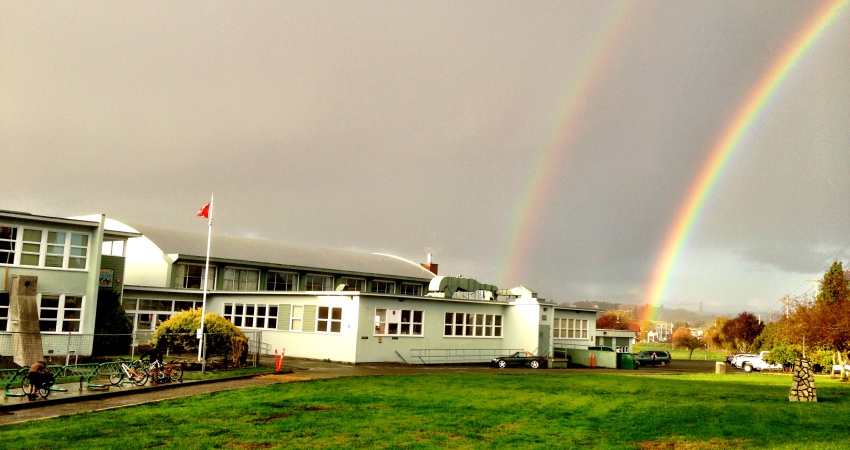Here I present some of my career highlights as an educator to date. Huge thanks to the communities and collaborators who made these transformative experiences possible.
Practicum – Lansdowne Middle School (Fall 2020)
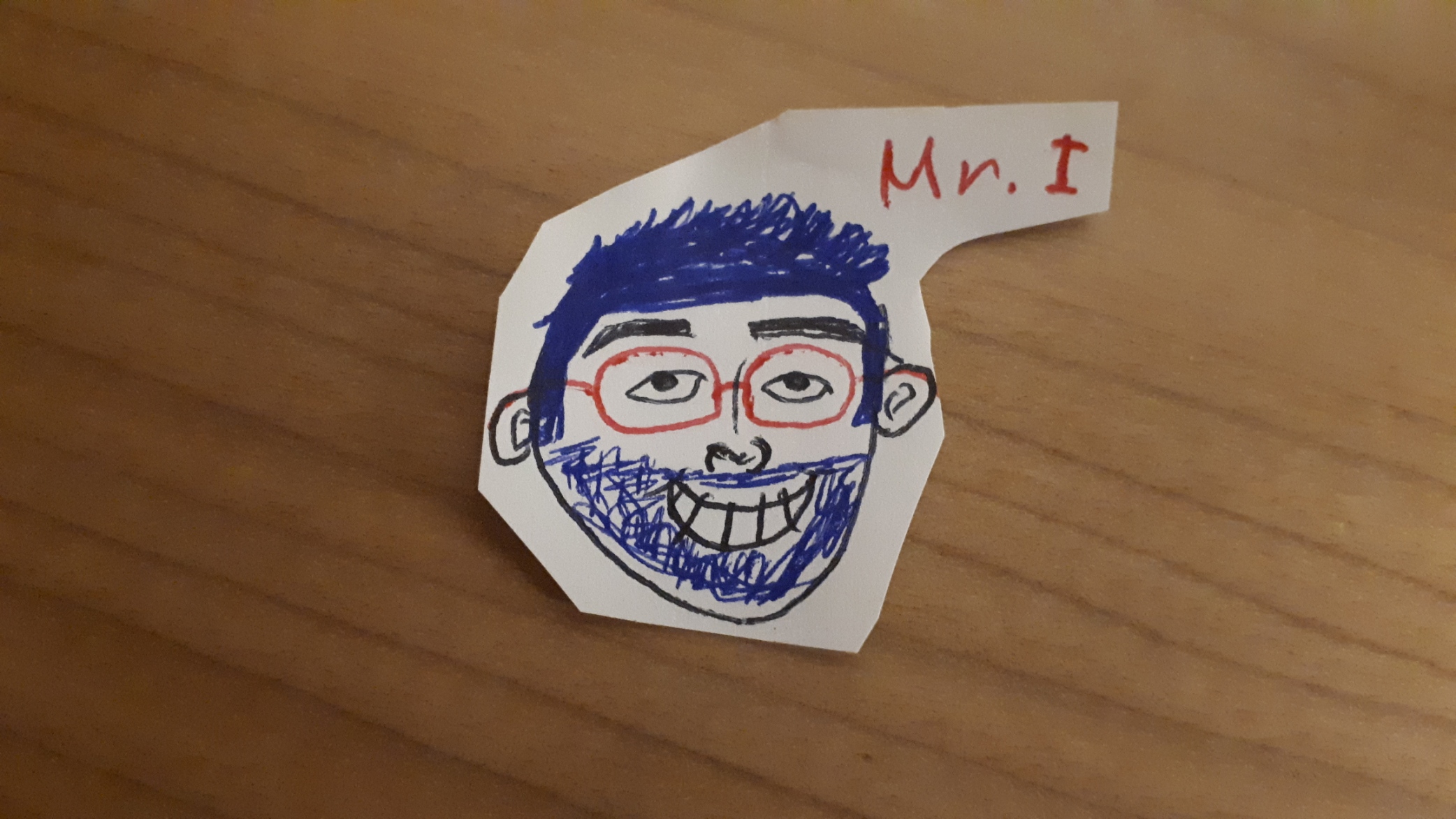
From October to December 2020, I completed my final practicum at Lansdowne Middle School. During this time, I taught grade 7 & 8 students in science, social studies and PE/fitness studio. This enriching experience was an incredible opportunity. Though it’s difficult to briefly summarize, I can say that it fundamentally affirmed my desire to be a classroom teacher. It was fascinating to plan and deliver content for 5 different subjects to a steady group of students. This allowed me to experiment with differentiation, simulations and interdisciplinary learning. I learned important lessons about lesson design and how to respond to the needs of students. Although I was busy, I did not feel stressed. My mentor, Wendy Huston, encouraged me to consider accessibility and motivated me to apply Universal Design principles to set my students up for success. I was able to get involved in extracurriculars, plan joint projects and and observe veteran teachers throughout my practicum. Working in this environment showed me how much I have to learn and made me even more grateful for the creativity and daily challenge that teaching offers.
What will stick with me most is the relationships and connections I made at Lansdowne. Despite the challenges of COVID-19, I was welcomed into a vibrant school community with so much collective experience and talent. It was satisfying to build rapport with my 45 students and work together to co-create an enriched and supportive classroom environment. Beyond Rm. 210, I collaborate and learned from so many staff members. The mentorship and support I received is a testament to the collegiality of the profession and the shared purpose that unites all educators. Working on joint projects with experienced teachers inspired me and gave me perspective on what to expect from the career to come. Now that I have completed my teacher training, I will remain connected with this place through TTOC work, volunteering in extracurriculars and keeping staff in my personal learning network. I’ll never forget my time at Lansdowne.
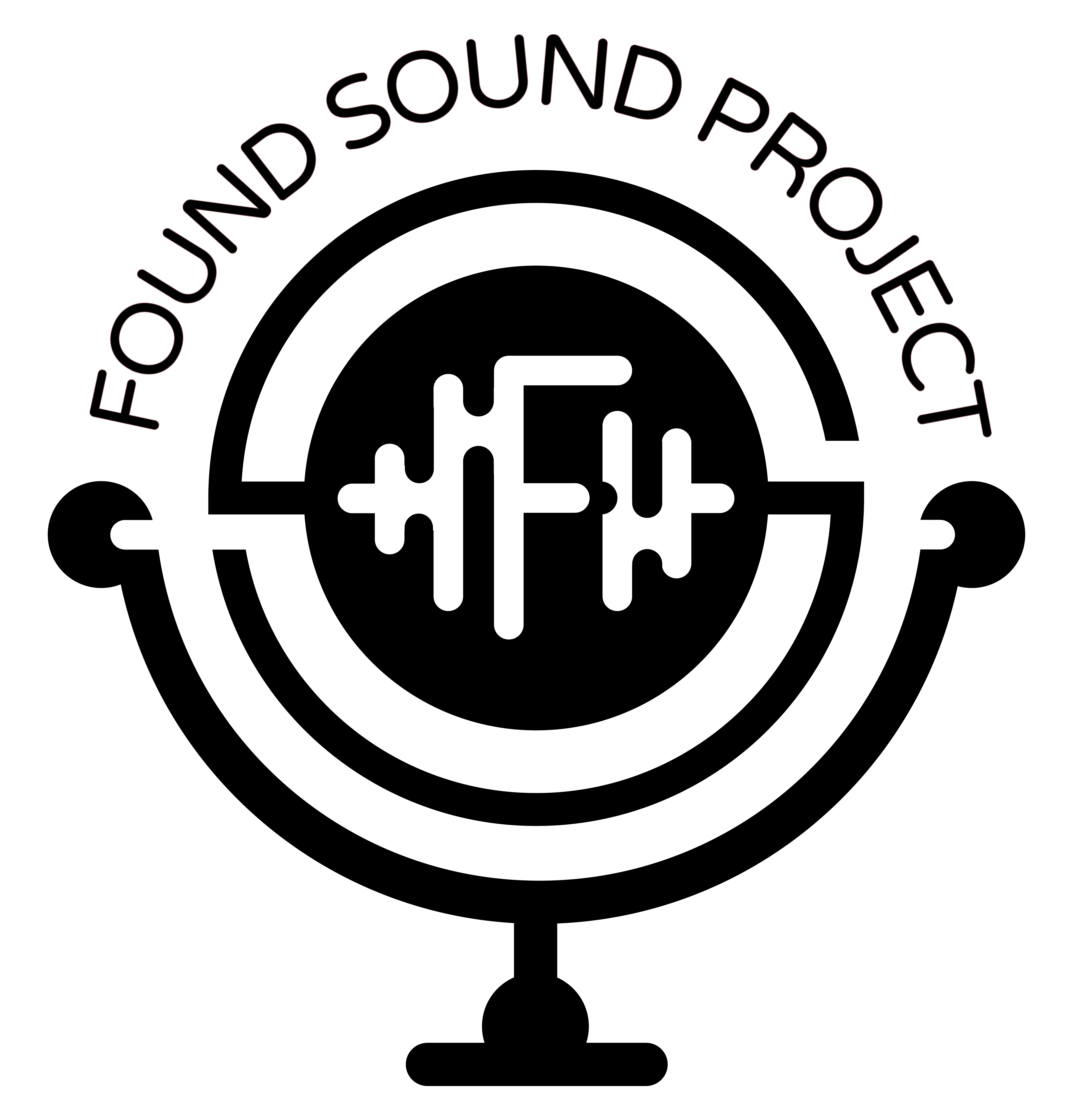 The Found Sound Project (July 2020)
The Found Sound Project (July 2020)
This July, I had the rewarding experience of creating a summer camp, The Found Sound Project. The project was imagined due to the need for music education to move outdoors as a result of COVID-19. I saw this as an opportunity to design a camp that would put some of the major themes of my education degree into practice including transdisciplinarity, place-based learning and project-based learning. In the project youth age 9-12 spent one week exploring the land and capturing field recordings. Through a week of structured inquiry, students learned to critically listen to their environment and use the sounds captured in the field to create compositions using the digital audio workstation Ableton Live.
I was deeply impressed by the campers’ ingenuity, determination and curiousity. These young artists were willing to listen in novel ways, navigate complex technology and broaden their concept of what constitutes artistic sound. At week’s end, each young person had created their own unique composition which was shared with their families at a public exhibition. I’ve put together a website to share these composers’ pieces with you, some info about the process and resources for other educators to use.
I’d like to thank the many people who helped make the inaugural Found Sound Project a success: Lonny Koch, Guillaume Richards, David Parfit and Aaron Lam. I would also like to thank the UVic Faculty of Education for featuring the project in an article.
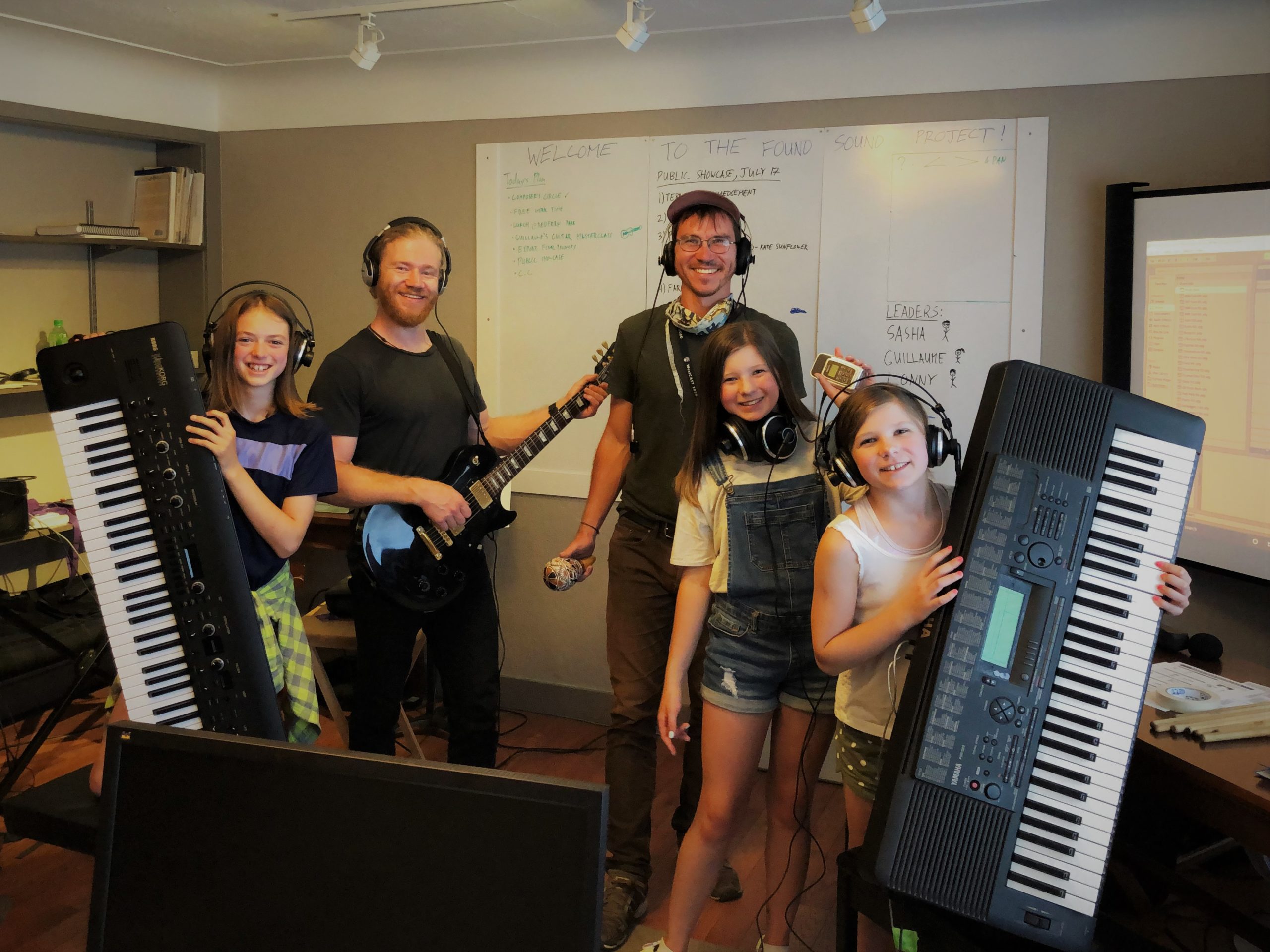
Members of the inaugural cohort of the FSP.
WestCAST 2020 (January 2020)
In January, I was selected to represent UVic at WestCAST 2020, a conference for educators in western Canada. This was my first experience presenting at an education conference. I delivered a talk that grew from a personal inquiry project that fall on the topic of differentiated assessment in the classroom. In essence, my presentation highlighted the value of differentiation and provided some best practices for encouraging students to demonstrate their mastery of concepts in the medium of their choosing. Preparing and delivering my talk was valuable as it lead to me many interesting conversations and encouraged me to crystallize my thinking on this area of pedagaogy.
What blew me away most at WestCAST was the incredible community that I experienced. I felt as though I was part of a welcoming, expansive community with a great deal of accumulated knowledge and experience. At the conference, I had incredible interactions with both emerging and experienced educators. I attended presentations and workshops on topics including Indigenizing education, the Currere method, simulation in socials, place-conscious pedagogy, supporting ELLs and novel frontiers in competency-based assessment. The keynote presentation by Chris Scribe (Assiniboine/Cree) was moving, relevant and highly empowering. I hope that I can attend the conference again in the future.
Let’s Talk Science Local Outreach Coordinator (May 2018-September 2019)

After having volunteered with Let’s Talk Science (LTS) for a year, I became the local outreach coordinator in May 2018. LTS is a national non-profit organization that delivers STEM outreach in communities across Canada. The staff of LTS is almost entirely volunteers from universities who have offered their time to provide free programming to local youth. As local outreach coordinator, it was my job to train lab instructors and overseeing classroom visits, acting as a liaison between local teachers and our volunteers. This position was satisfying and instructive in so many ways.
I got to learn more about interactive, hands-on teaching practices in science rangingK-12. I encountered many inspiring teachers and volunteers who were committed to making STEM inclusive, relevant and engaging. I came to appreciate that – just as there are many ways to learn – there are so many ways to teach. When a volunteer instructor got into their stride and understood their unique method of connecting with learners, it was wonderful to behold.
LTS commissioned experienced teachers to develop labs that touched on topics ranging from marine sciences to climate change to robotics to sound. Exposure to these kits gave me a more well-rounded understanding of how to do science with young people. Studying and delivering the workshops made me truly appreciate the need for designing STEM lessons around three phases: Experience (actually do something), Discuss (note observations and propose explanations) and Understand (link to established theory). This form of experiential learning is much more enduring and invites engagement from the most learners possible. Looking forward to my career, I feel fortunate to have this experience to act as a touchstone of sound science pedagogy.
Finally, LTS taught me about the importance of collegiality in education. I worked with a small team of three coordinators to deliver our programs. Through collaborative and co-designed systems we were able to provide – free of charge – over one hundred classroom visits, invite thousands of students to visit labs at UVic and host special events on topics including Women in Science, Harry Potter and Climate Science. Beyond our staff, we were fortunate to receive funding and expertise from partners within the community who were invested in science programming for youth. All of these collaborations made me appreciate the breadth of human contributions that underscore a thriving educational environment.
What career highlights are next? Only time will tell…
